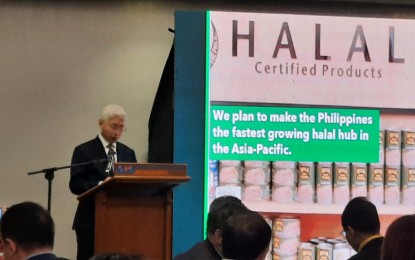The Philippines is set to double its halal-certified commodities in the next few years, as the government ramps up efforts to tap into the rapidly growing halal market.
According to the Department of Trade and Industry (DTI) in the Philippines, the country aims to increase its halal-certified products from the current 25 to 50 by 2023. This ambitious goal is part of the government’s strategy to position the Philippines as a key player in the global halal industry.
The halal market is a multi-billion dollar industry that is rapidly expanding in both Muslim-majority and non-Muslim-majority countries. With an estimated 1.8 billion Muslim consumers worldwide, the demand for halal-certified products is on the rise, creating immense potential for countries like the Philippines to capitalize on this market.
In line with this, the Philippine government is focusing on boosting the production and export of halal-certified products, such as food and beverage, cosmetics, pharmaceuticals, and tourism services. This includes providing support to local businesses in obtaining halal certification, as well as enhancing halal infrastructure and accreditation processes.
The DTI is also working to build the capacity of small and medium-sized enterprises (SMEs) in the Philippines to meet halal standards. By providing training, technical assistance, and access to financing, the government aims to empower local businesses to capture a share of the global halal market.
In addition, the Philippines is looking to establish stronger trade and investment ties with key halal markets, such as Malaysia, Indonesia, and the Gulf countries. By forging partnerships and collaborations with these countries, the Philippines hopes to leverage their expertise and market access to expand its halal trade and investment opportunities.
Furthermore, the government is positioning the Philippines as a halal-friendly tourist destination. With its diverse culture, rich history, and stunning natural landscapes, the Philippines has the potential to attract Muslim travelers seeking halal-friendly services and experiences. By promoting halal-certified hotels, restaurants, and tourist attractions, the country aims to boost its tourism sector and cater to the needs of Muslim visitors.
Overall, the Philippines’ efforts to double its halal-certified commodities are a strategic move to tap into the lucrative halal market and position the country as a competitive player in the global halal industry. With the government’s commitment and support, as well as the potential of local businesses, the Philippines is poised to make significant strides in meeting the growing demand for halal-certified products.





































































